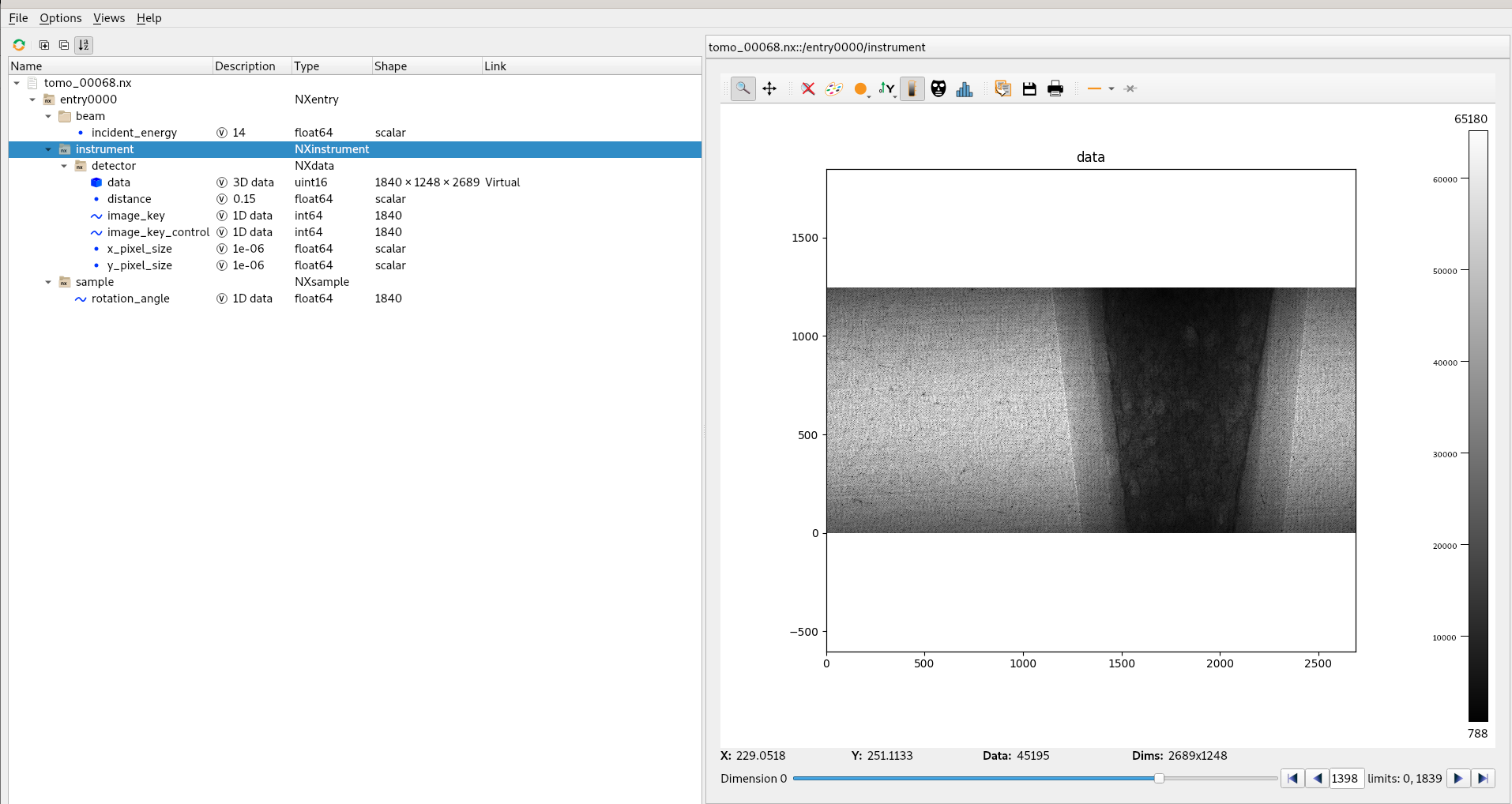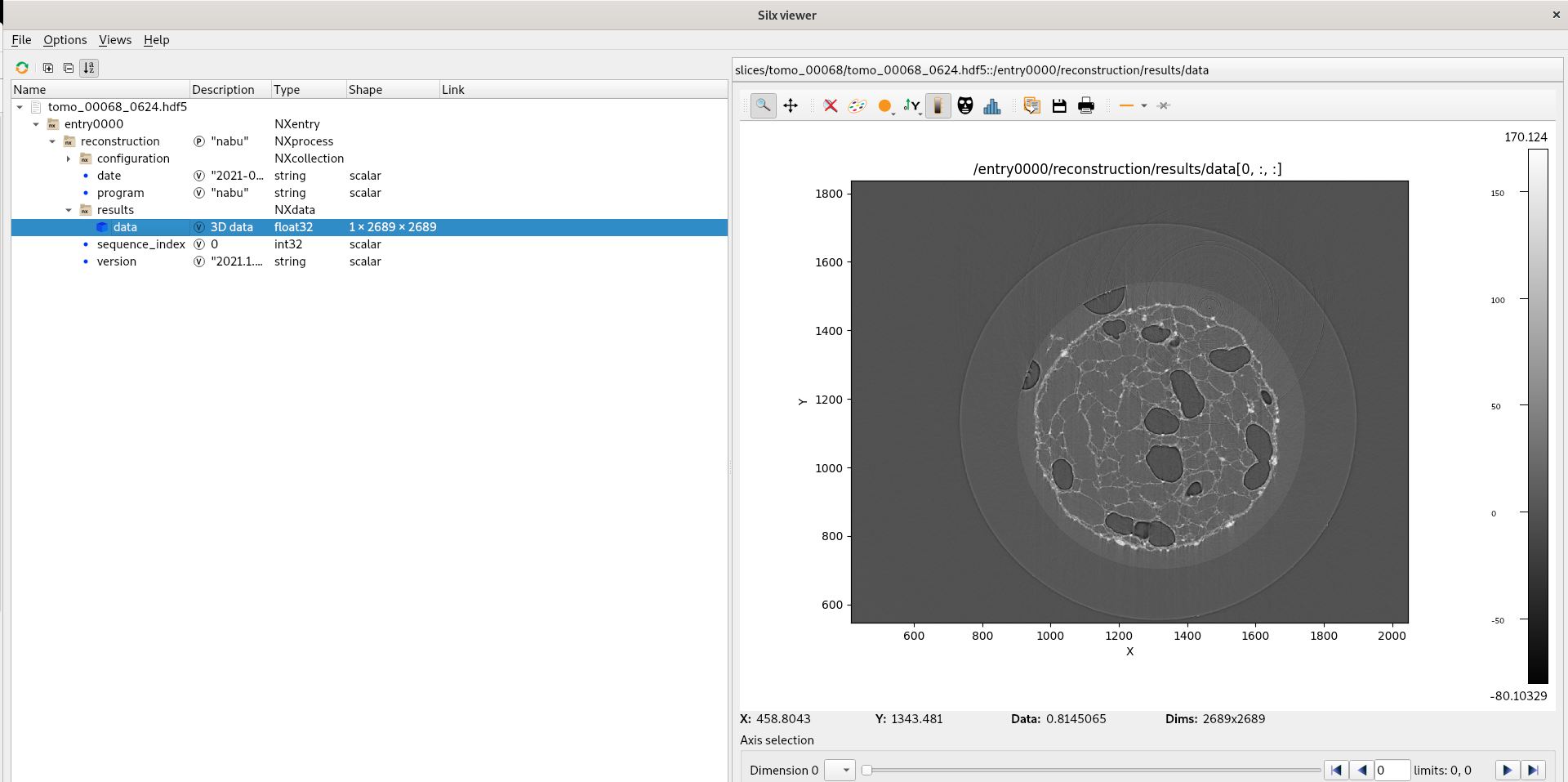dxfile2nx tutorial#
10 min read
the dxfile2nx application is used to convert an acquisition stored with the dxfile format to the NXTomo format.
To call this application you can call directly
nxtomomill dxfile2nx [input_file] [output_file] [[options]]
You can access help by calling
$ nxtomomill dxfile2nx --help
usage: nxtomomill dxfile2nx [-h] [--input_entry INPUT_ENTRY]
[--output_entry OUTPUT_ENTRY]
[--file_extension FILE_EXTENSION]
[--scan-range SCAN_RANGE]
[--pixel-size PIXEL_SIZE] [--fov FIELD_OF_VIEW]
[--distance DISTANCE] [--energy ENERGY]
[--overwrite] [--no-data-copy]
input_file output_file
convert acquisition contained in provided dx file to NXTomo entry
positional arguments:
input_file master file of the acquisition
output_file output .nx or .h5 file
optional arguments:
-h, --help show this help message and exit
--input_entry INPUT_ENTRY
h5py group path to be converted
--output_entry OUTPUT_ENTRY
h5py group path to store the NXTomo
--file_extension FILE_EXTENSION
extension of the output file. Valid values are
.h5/.hdf5/.nx
--scan-range SCAN_RANGE
scan range of the projections. Dark and flat will
always be considered with rotation angle ==
scan_range[0]
--pixel-size PIXEL_SIZE
pixel size in meter as (x pixel size, y pixel size)
--fov FIELD_OF_VIEW, --field-of-view FIELD_OF_VIEW
pixel size in meter as (x pixel size, y pixel size)
--distance DISTANCE, --detector-sample-distance DISTANCE
sample to detector distance (in meter)
--energy ENERGY, --incident-beam-energy ENERGY
incident beam energy in keV
--overwrite Do not ask for user permission to overwrite output
files
--no-data-copy Avoid creating any symbolic link between input and
output fileand duplicate the frame datasets to have a
'all-in-one' output file.
Here is an example on how to convert a dxfile. For it we downloaded the tomo_00068 dataset
To convert it we simply go for
nxtomomill dxfile2nx tomo_00068.h5 tomo_00068.nx
Here the conversion will set default values to parameters that are not recorded in the dxfile but that tomography software mights need. Such as beam energy … Here is an example of providing more information to the converter and requesting the converter to overwrite the output NXtomo entry if it exists
nxtomomill dxfile2nx tomo_00068.h5 tomo_00068.nx --scan-range 0,180 --distance 0.15 --energy 14 --overwrite
Here is an example of the NXTomo entry generated:

From it you can use several tomography tool like nabu and / or tomwer.
Warning
to have a complete usage of tomwer you will also have to provide the field of view of the detector (Full or Half)
Example of the reconstruction of the middle slice using nabu:
